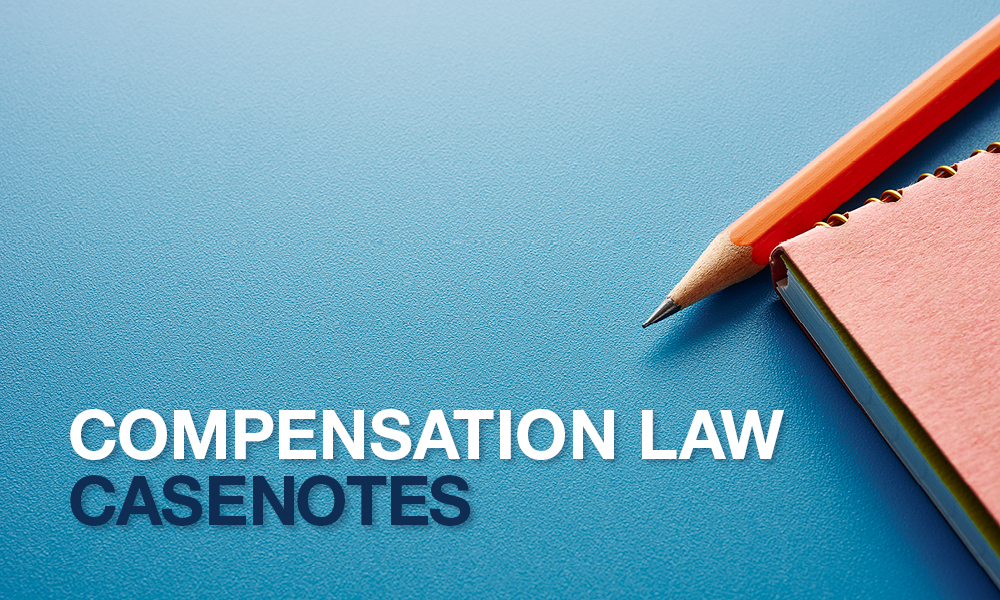…knowledge of material facts – decisive character – what are material facts?
The applicant – the plaintiff – applied for an extension of her limitation date pursuant to section 31 of the Limitation of Actions Act 1974 (Qld) (LAA).
The applicant brought a claim in negligence based on a ‘failure to warn’ concerning two surgeries she underwent in 2011. The first and second respondents to the application were the first and second defendants to the proceeding.
The proceeding was transferred to the Supreme Court in Queensland, and the law of Queensland applied to her claim. The pleaded negligence claim was statute barred – by operation of s11(1), LAA – and the applicant needed leave to proceed further.
In 2010 the applicant consulted with the first defendant (obstetrician and gynaecologist) regarding urinary incontinence, and underwent two surgeries the following year. The applicant’s claim was that the doctor had not discussed with her complications that might arise with the surgery, including the use of a ‘tape’.
She also alleged that the doctor did not provide her with other options, including other surgical options and low-risk conservative measures she might have been able to take. The plaintiff alleged that, had she received the information, she would not have proceeded with the surgeries, and she had now suffered serious injury, loss and damage as a consequence.
The applicant argued that the material fact of a decisive character relating to a right of action – not within her means of knowledge until or after 11 December 2007 – was information contained within medical reports given to her solicitors on 26 October 2017. These included Dr Lander’s report (dated 5 December 2019), Dr Reid’s report (dated 17 March 2014) and the further report of Dr Lander (dated 27 July 2017).
The reports were provided by the applicant to her current solicitors on 25 October 2017, and her current solicitors first advised the applicant she had a viable claim – and that they would represent her – on 11 December 2017.
The court also heard that the applicant had consulted with at least three other solicitors/firms prior to obtaining her current representation, and at all times in doing so was in possession of Dr Lander’s first report and that of Dr Reid. It was also noted by the court the lack of active steps taken by her to proceed with the claim between late 2014 and early 2017.
The applicant had also argued the position that a material fact of a decisive character was not within her means of knowledge until 11 December 2017, that is, the date on which she received advice from her current solicitors that she had a viable claim against the respondents, and that the law firm would represent her in that claim.
Decision
- Application dismissed.
- The applicant pay the respondents’ costs of the application.
- Grant leave under rule 376(3) of the Uniform Civil Procedure Rules 1999, for the plaintiff to amend the claim and statement of claim to remove the pleaded negligence action.
Ratio
The judge did not consider that giving or being in receipt of legal advice constituted the whole (or part) of the material facts relating to a right of action within ss30 or 31 of the LAA, and referred to the decision in Do Carmo v. Ford Excavations Pty Ltd [1984] 154 CLR 234.
In that decision, and by reference to s30(1) of the LAA, the court had held that the section is concerned with ‘material fact/s’, and the fact/s must relate to the occurrence of negligence and the acts or omissions alleged to constitute the relevant tort for the cause of action. Accordingly, the section is concerned with distilling the facts, not legal advice about those facts.
However, this was only one aspect of the applicant’s case. The judge had to then consider whether or not there was a material fact of a decisive character relating to the applicant’s cause of action contained in the material provided. That is, the material provided to the applicant’s solicitors on 25 October 2017, in particular the three medical reports.
The judge was satisfied that the first two reports disclosed material facts of a decisive character relating to the relevant right of action, but not the third report. The allegations of a breach of duty in the applicant’s statement of claim – that she should have received advice about the desirability of the surgeries in light of her particular underlying anatomy (in this case her immobile urethra), and that she should have received advice about the possibility of mesh pain syndrome arising as a consequence – were sufficient.
These reports, or the conclusions in them, were material facts needed to establish or show the negligent character of the respondent’s alleged negligence, through failure to warn as pleaded. The second report of Dr Lander was not considered to contain any material fact, because there was nothing in the report that the applicant would not have known about as a consequence of receiving the first report.
The next issue for the court to determine was whether or not the ‘material fact of a decisive character’ was within the applicant’s knowledge prior to 4 October 2017. The judge held that the fact was not within the knowledge of the applicant, that is, the fact that the applicant had not obtained appropriate advice that gave the material facts their ‘decisive character’, until 11 December 2017.
However, the next issue to be determined was whether or not the applicant took all reasonable steps to find out before the relevant date. The applicant already had the reports in her possession, so had she taken all reasonable steps to obtain advice necessary to give the material fact in the reports their decisive character?
That assessment must be looked at by reference to what a ‘reasonable person’ in the position of the applicant should have done. In that regard, the court paid attention to the chronology of the matter, with a particular focus on what the applicant did with her claim between March 2014 and 4 October 2017.
The applicant was in possession of two of the relevant reports by March 2014, and she had the opportunity to take legal advice arising from those two reports from more than one firm after 17 March 2014. The judge pointed to the applicant’s affidavit which made no direct reference to the reports, what she made of the reports, and whether and when she provided the reports to the various solicitors she had consulted with prior.
It was clear the applicant was firmly of the view she had been wronged and that the respondents had caused her serious injury, and she knew that the limitation period for bringing a claim against the respondents had expired. It was not reasonable to allow a further two years to pass before seeking out advice needed to justify pursuing her claim.
Accordingly, the applicant had not taken all reasonable steps to find out the relevant material facts of a decisive character before 14 October 2017, on the basis that the material facts of a decisive character relating to the right of action were within her means of knowledge prior to 4 October 2017.
The judge went on to consider whether or not there was any prejudice to the defendants regarding the application to extend the limitation period, and held that the passage of time and the first respondent’s recollection of events (including the first respondent’s mental decline) made the position of the respondents more difficult, and that a fair trial was at least improbable.
The judge considered that there was a real risk a fair trial would not be achieved, where the applicant intended to rely on evidence of conversations where the first defendant’s ability to recall those was now impaired. The judge was satisfied that the prejudice to the respondents – from the first defendant’s declining status – rose to the level that would make the trial inherently unfair, given the burden on the plaintiff to prove the alleged failure to warn by giving evidence of conversations had with the first defendant about those issues.
This compensation law casenote appears courtesy of Travis Schultz & Partners (TSP), where the author, Tim McClymont, is a Partner. As part of the firm’s commitment to providing ongoing legal education, TSP practitioners review relevant judgments and prepare case summaries for the legal profession. A free searchable catalogue of compensation law casenotes is available at schultzlaw.com.au/case-summaries (registration required). The full version of the judgments can be found at austlii.edu.au.













Share this article